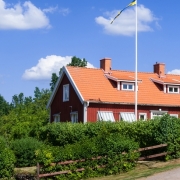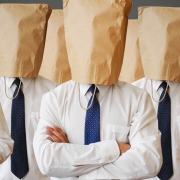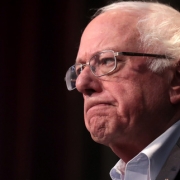Some commentators fear that the world is heading towards greater authoritarianism. They point to President-For-Life Xi in China, Vladimir Putin in Russia, President Recep Tayyip Erdogan in Turkey, and a few more emerging dictators. The same commentators often point to what they see as increasing authoritarianism and centralization in the USA.
But Robert Kaplan, employing his encyclopedic knowledge of the history of nation-state politics, points out that the increasing creation of wealth and opportunities for the middle classes, especially when supported by technology, results in demands for greater freedom and opportunity. Governments are too slow, sclerotic and resistant to respond. The people win by pursuing advantage via the economic way. Governments mired in the political way are forced to adapt or perish.
Mr. Kaplan provides a useful reminder to us to be optimistic and pursue our goals, in spite of authoritarian government. Here is his recent article in the Wall Street Journal.
______________________________________________________________________________
We have moved from a world of ideological struggles in the 20th century to a world of geopolitical struggles in the 21st—or so goes the conventional wisdom. But technology is moving so fast that this world of geopolitical struggles will likely transform into another stage of conflict. Eurasia itself will become unhinged, as the destabilizing autocracies in Moscow and Beijing themselves become unstable.
In December 1997, I published a cover story in the Atlantic called “Was Democracy Just a Moment?” It was a time of unbridled optimism among policy elites about the triumph of democracy across the world. Contrarily, I argued that such a triumph would be short-lived and that new forms of authoritarianism would arise. My argument was based on experience on the ground as a foreign correspondent in dozens of countries, where elections had been held without institutions and middle classes being built. Now my experience as a reader and a foreign correspondent reveals to me another lesson: The authoritarian trend that I predicted over 20 years ago may also not be sustainable.
The explosions of middle-class wealth and technological advancement, often occurring under authoritarian or quasi-authoritarian systems, are putting pressure on governments to be more alert to the needs of their citizens. Russia and China most acutely represent this trend. They now face what I call the Samuel Huntington trap.
Huntington, who died in 2008, was arguably America’s most clairvoyant political scientist. The Harvard scholar has in recent years been famous for his clash of civilizations thesis, propounded in 1993, which the recent struggle between the West and militant Islam vindicated. But Huntington published his greatest work, “Political Order in Changing Societies,” in 1968. One of its central themes: The creation of large middle classes can actually be politically destabilizing if governmental institutions do not simultaneously become more efficient and responsive.
Russian President Vladimir Putin may be intimidating the West with his military buildup and aggression. But he rules rather than governs. Russia does not have institutions so much as a camarilla of oligarchs around the leader. Russia’s citizens, with severe ups and downs, have seen their economic lives move in the direction of normality since Boris Yeltsin’s chaotic reign in the 1990s. But as life, particularly physical security, has improved, Russia has seen little institutional development. As Mr. Putin ages, Russia’s stability cannot be taken for granted. A low-calorie version of the former Yugoslavia may be in the making at the fringes of its empire. Russia would be lucky to have America’s problems.
China was until recently developing into an enlightened authoritarian system. The collegial-style rule of technocrats encouraged the establishment of lasting institutions, with term limits for the leader himself buttressing everything. But the effective coronation of President Xi Jinping as president for life overturns this dynamic. One-man rule means a cult of personality, decimating the collegial system upon which institution-building has rested. This occurs at a time when China’s middle class is expanding, even as the Chinese state is starting to use technology, such as facial recognition and search engine monitoring, to pry into the online and offline behavior of its citizens.
Chinese society is entering a phase in which people, on the whole getting richer, are demanding more from their government. This is the basis of Huntington’s argument in “Political Order in Changing Societies.” Political turmoil never stops as societies develop; politics merely ascends to new and more sophisticated stages of instability. This is why history is so tumultuous.
American elites, fearful of dictatorship in Russia and China, are assuming that the world has reached a fixed state. It hasn’t. The thought controls the Chinese regime is attempting to place on its own people will work for now. But the ultimate result will be more psychosis, repression and anxiety on the individual level. From this new social explosions will ultimately emanate.
Technology is unhinging all sorts of societies. Look at the U.S. A world without instant polling and internet-fed polarization would yield a calmer political climate. A world of smoke-filled rooms rather than primaries would have produced a more conventional Republican presidential candidate in 2016. But America’s newfound political instability—with all of its dangers—is of a self-correcting sort. The U.S. holds elections at the local, state and national levels that allow citizens and their elites to respond and adapt to ever-changing circumstances.
Russia and China are in different situations. Russia is a rickety house that at some point may crumble. China is sturdier; nevertheless, it could slowly become a compressed pack of social dynamite with less of an outlet for its internal frustrations. It is theoretically possible for Mr. Xi, as president for life, to institute a program of dramatic economic reforms. But doing so would unleash the need and yearning for more personal freedoms, the kind that the regime is moving with its technological thought control to try to eliminate.
As Russia and China strengthen militarily, even as they maintain and intensify internal repression, they will continue to clash with the West in the near term. But as in the early days of the Cold War, policy makers have to look beyond the present to the difficulty our adversaries will have sustaining their systems over time. And if their systems come undone in the next decade or the one after, Eurasia—of which Russia and China are the geographic organizing principles—will face extreme instability. The U.S. must gird itself for this struggle, though with a certain degree of optimism. Democracy is the better long-distance runner.
Mr. Kaplan, a senior fellow at the Center for a New American Security and a senior adviser at Eurasia Group, is author of “The Return of Marco Polo’s World: War, Strategy, and American Interests in the Twenty-First Century,” just out from Random House.
Mr. Kaplan’s article appeared in the March 24, 2018, print edition of the Wall Street Journal, under the headline How Russia and China Could Come Unhinged.













